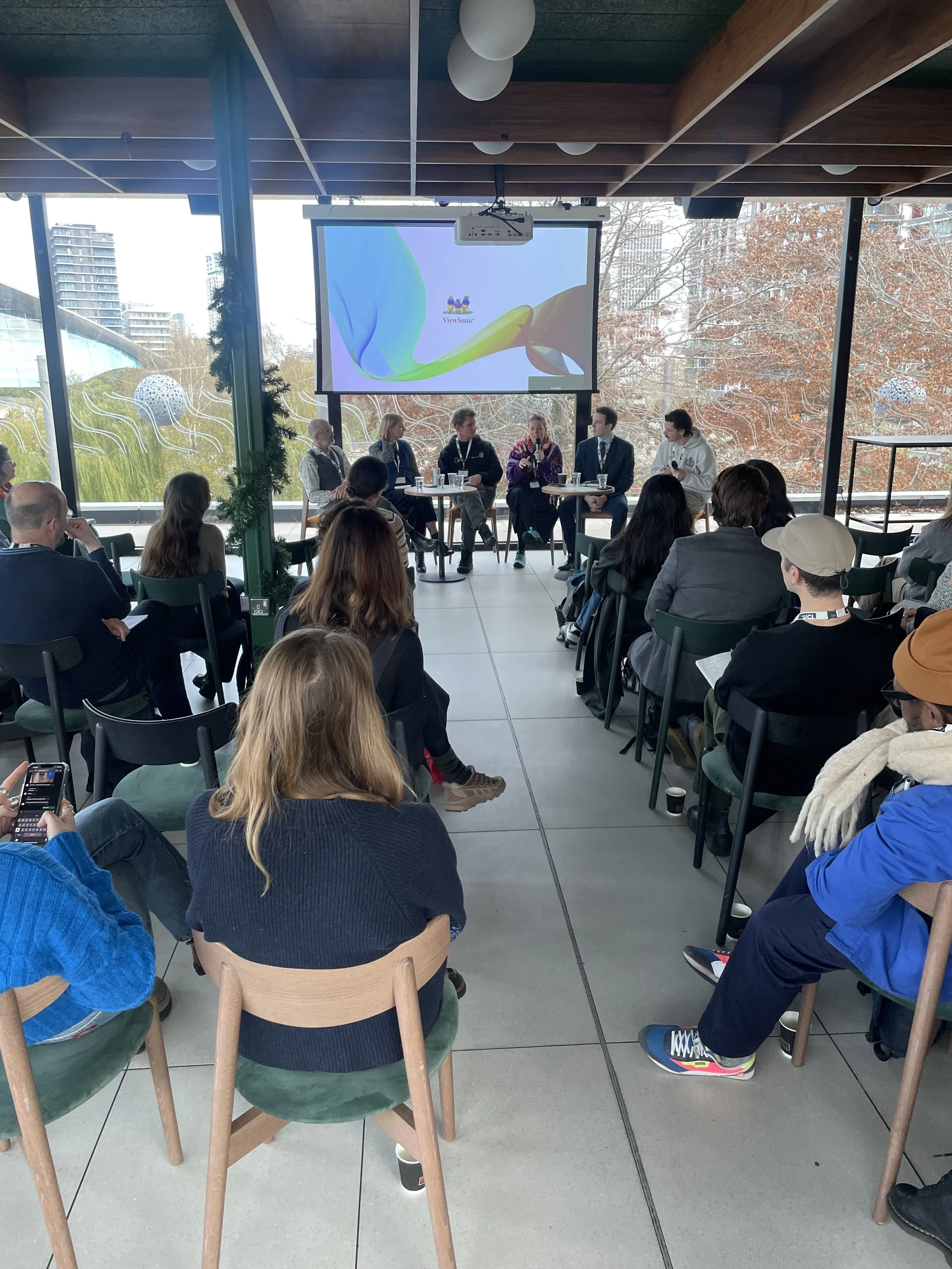From Pilot to Practice: Upscaling Circular Economy Innovation
Last week, we partnered with UCL Innovation & Enterprise on an event that cut through the usual circular economy rhetoric. No innovation theatre. Just honest conversation about the gap between pilot projects and the systems change we actually need.
Our Executive Director Patrick Scally hosted a panel at Riverside East in Queen Elizabeth Olympic Park that brought together people doing the real work: Mark Miodownik from UCL's Institute of Making, Sophie Thomas from The Great Recovery, Lukas Gast on sustainable infrastructure, James Suckling from Are You Mad, and Kat Scott from Hackney Council's climate team.
The brief was simple: how do we turn circular economy ideas into scalable, commercially viable, and socially beneficial outcomes?
The day combined panel discussion with hands-on workshops led by The Loop’s Studio Tip, plus presentations on UCL's knowledge exchange work with The Loop—including insights from Ro Hewlett on circular metals research. What made it valuable wasn't the format. It was the mix of people in the room: academics, researchers, SMEs, start-ups, policy professionals, and manufacturers all wrestling with the same fundamental question: how do we make this work beyond the pilot phase?
Because that's where most circular economy projects die. They work brilliantly in a controlled environment with grant funding and academic support. Then the money runs out, political priorities shift, or the business case doesn't stack up at scale. The result? Another proof of concept that proves nothing beyond its own limitations.
The event also introduced UCL's innovation funding opportunity—up to £5,000 for collaborative projects between UCL staff and companies. This funding is structured to support exactly what we need more of: practical collaboration that moves from concept to commercial application. The funding call is open now, and enquiries can be sent to b.malkani@ucl.ac.uk.
For HWFI CDT, this partnership with UCL represented something we've been building towards for years. The Loop exists as a testbed precisely because circular economy needs physical infrastructure. Long-term workspace secured in community ownership means businesses can actually plan beyond the next funding cycle.
What came through clearly from the discussion was that scaling circular economy requires three things working together: research that understands real-world constraints, business models that work without permanent subsidy, and community infrastructure that survives political cycles. Miss any one of those and you're back to innovation theatre.
The turnout confirmed what we already knew: there's serious appetite for circular economy work that delivers tangible outcomes. People want the physical systems, the supply chains, the training facilities that make circular economy real and permanent.
If you're working in this space and missed the event, keep an eye on future collaboration opportunities between UCL and The Loop. And if you're interested in how HWFI CDT is building permanent circular economy infrastructure in East London, get in touch.


